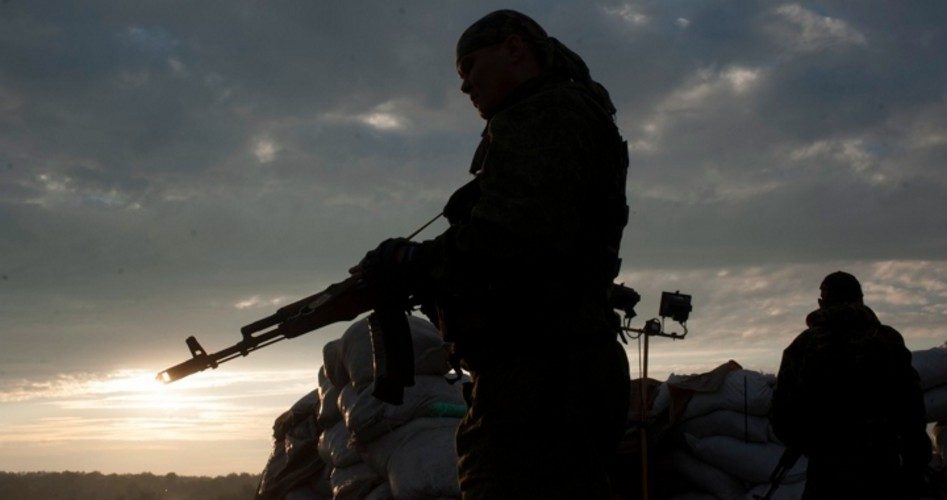
Recent battles in eastern Ukraine have grown increasingly bloody, even as authorities in Kiev continue to seek an end to the conflict. Ukrainian soldiers and Moscow-backed insurrectionists have been engaged in pitched battles, with casualties now numbering in the hundreds. According to a report from Reuters, as many as 4,000 insurrectionists under the command of Igor Strelkov are engaged in combat against Ukrainian forces. According to the same report, Strelkov claims that the insurrectionists have suffered heavy losses and he is calling on Moscow to intervene directly on behalf of the armed effort to seize territory in eastern Ukraine.
It was widely reported on June 18 that the new Ukrainian president, Petro Poroshenko, spoke by phone with Russian president Vladimir Putin, and, in the words of a CNN report, “Poroshenko discussed the main points and the implementation of a peace plan for eastern Ukraine, where Ukrainian authorities have been at odds with pro-Russia separatists…. Poroshenko stressed the need for the release of Ukrainian hostages and to establish effective security controls on the border with Russia.” However, far from defusing the Ukrainian crisis, the New York Times reports that Putin’s response to Poroshenko was to complain to German chancellor Angela Merkel and French president François Hollande, expressing “grave concern about Kiev’s continuing military operation in southeast Ukraine,” even as he moved more Russian troops to locations near the Ukrainian border.
As was previously reported for The New American, a significant escalation in tensions occurred last week when at least three Russian T-72 tanks (as well as other armored vehicles) allegedly crossed into Ukraine. Reports are surfacing that Russian troops and armored vehicles are now entering Ukraine in larger numbers than were reported last week; however, as the Washington Post observes, this claim has not been verified:
Russia has redeployed more troops to the Ukrainian border, including special forces units that are arming and training pro-Russian Ukrainian separatists, U.S. officials said Friday, as fighting continued to flare in the region….
Tanks and heavy artillery departed from sites in southwestern Russia and headed toward the border over the past 24 hours, according to a senior U.S. official. The Ukrainian government has said that Russian tanks have entered eastern Ukraine, but those reports have not been confirmed by the United States, said the official, who spoke on the condition of anonymity because she was not authorized to speak for attribution.
Even as the first tanks were crossing into Ukraine last week, a mass rally was staged in Moscow on June 11 in an attempt to show “popular support” for Russian intervention, with notorious Eurasianist expansionists such as Vladimir Zhirinovsky and Aleksandr Dugin calling upon Putin to intervene in the Ukrainian crisis with Russian troops. At the June 11 rally, Dugin warned that “if we now turn from Novorossiya, we will lose Crimea…. If we lose the Crimea, we lose Russia.” Novorossiya (“New Russia”) was the name which the Tsarist imperialists imposed on Ukraine; today, the name of “Novorossiya” is being applied to the Donetsk Oblast and Luhansk Oblast in eastern Ukraine, which the insurrectionists are now endeavoring to sever from Ukraine.
With American attention drawn to the latest round of armed conflict in Iraq, very little attention is being paid to the situation in Ukraine, and barring massive Russian military intervention, that situation is unlikely to change.
Thus, while Russian troops and armor may be moving into Ukraine, the Obama administration continues its asymmetrical campaign of limited sanctions; Igor Strelkov (the leader of insurrectionist forces in Donetsk) is among seven individuals targeted by the U.S. Treasury — a fact which may be of interest to him if he survives the current conflict.
Igor Strelkov (also known as Igor Girkin) has a long and bloody record on behalf of Russia’s expansionist aims. The BBC reports that Strelkov previously worked for Russian military intelligence — the GRU — and that he was involved in the wars in Yugoslavia and Chechnya. He was previously active in Crimea. The same BBC report cites Strelkov as claiming that “his brigade in Sloviansk had been formed in Crimea from volunteers only, but most of them had combat experience fighting for the Russian armed forces in Chechnya, Central Asia, Yugoslavia, Iraq and even Syria.” However, given the number of ‘Russian volunteers’ now apparently present in eastern Ukraine, it is simply impossible to verify Strelkov’s claim that his soldiers are “volunteers only.”
At present, according to the Ukrainian press, Ukrainian authorities opened criminal proceedings against Strelkov on April 15, claiming that “It is established that in early March 2014, he arrived in the Crimea and coordinated the seizure [sic] Russian soldiers and representatives of special services units of the Armed Forces of the Russian Federation, local authorities and Control Authority, kidnapping soldiers, NGO activists and other citizens of Ukraine, [and] foreigners who were in the Crimea. Moreover, I. Strelkov recruited citizens of Ukraine for further use in the organization of subversive actions in our country.”
President Poroshenko has purportedly initiated a seven-day, unilateral cease fire which has the stated intention of giving the insurrectionists an opportunity to surrender. However, given the charges which have already been filed against several key leaders of the revolt, and prospects for a greatly expanded Russian intervention, it is unsure how long Poroshenko’s ceasefire will remain in place. According to the Washington Post:
So far, rebels have rejected every offer to stop fighting. At daybreak Friday, militants launched an attack on government troops around the Luhansk airport, where they shot down a military transport plane last weekend. The government claims it has killed about 300 insurgents in fighting since Thursday morning, losing seven of its own troops.
Ukrainian security officials also said Ukraine has detained 13 Russian citizens among more than 90 “terrorists and saboteurs” in their custody, using a term that appeared to refer to intelligence agents as opposed to fighters.
Photo of pro-Russian fighter in eastern Ukraine: AP Images



